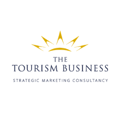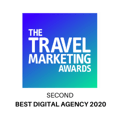Integrating the Travel Customer Journey into your SEO Strategy

The modern travel customer journey is not as simple as searching, clicking and booking. It’s a journey wrapped in research, sharing and information gathering that inspires travellers to interact and ultimately book with tourism businesses.
Having a clear SEO strategy is vital for a tourism business to succeed online as it allows you:
- Be more visible online and discoverable by potential customers
- Increase your conversion rate, and therefore your number of bookings.
- Compete against Online Travel Aggregators (OTAs) and encourage customers to book with you directly.
Google has defined four “micro-moments” where travel businesses will be visible by potential visitors, each at different parts of the customer’s journey and each that have different needs and intentions. Ranking for a few key phrases isn’t enough and good travel SEO strategy needs to take into consideration all of these moments.
Dreaming Moments
In dreaming moments, people are starting to think of taking a trip away. They may not know exactly where they want to go, or what they want to do, so they take to online searches to look for ideas.
People often get inspiration through generic search terms based on a location or the type of trip they want to take. Having a long-tail SEO strategy at this stage that can target highly specific phrases that relate to your offering. Such as:
- Couples getaway destinations
- Family-friendly holiday near London
- City breaks in England
People in this stage respond well to engaging highly visual content and video plays a big role in the dreaming stage, 60% of travellers watch online videos to narrow down their brand, destination and activity choices when considering a holiday. So you need to make sure that where a visitor lands after your search will serve them engaging content that will inspire people to find out more.
Planning moments
Once a holidaymaker has reached the planning stage, it means that they have refined their options and are now looking for where specifically they want to stay and do while they are there.
With the dominance of OTA sites and an expectation of receiving answers to queries sooner, the number of sites a potential traveller will visit whilst planning has dramatically decreased. To cater for this, it is very important to have a range of specific keywords in order to reach your audience. Such as:
- Dog-friendly hotels in Dorset
- Museums near Bristol
- Family cottages in the Lake District
Booking Moments
When it gets time for someone to book it’s all about your user experience. Online bookings have become commonplace, but it’s important to have them work seamlessly and in a way trusted way.
Your SEO strategy at this point should be brand-specific in order to compete with OTAs, so that customers will book with you directly. If you are a less well-known brand, make sure you have included variations of your brand name to help you be discovered. Search terms could include:
- Buy tickets for {exhibition / event name}
- {Hotel Name} availability in June
- {Mispelt Hotel Name} book
Experiencing moments
Experiencing moments are when your guests are at your business. Your SEO strategy should focus on sharing information for travellers, making sure they can find out the details they need as quickly as possible. It’s also the perfect moment to integrate your social media and SEO strategies as a large part of experience moments are about reviews, sharing experiences and connection.
Search terms could include:
- {Museum name} opening times
- How to get to {attraction name}
- {Hotel Name} reviews
For tourism businesses that want to succeed online, it’s more than just being visible on Google. You need to understand and connect with the right people and show them what you have to offer at the right time if you want to encourage them to convert.
SEO is an integral part of any travel digital strategy and is why Digital Visitor has now launched SEO as a service for our clients. If you are looking to be ready for the May 2021 update, or would like to know more or for any advice then please get in touch.
Jamie is Digital Visitor's Marketing Manager and oversees our messaging and content. If you are interested in knowing more about anything covered in this blog, or would like to see more on a certain topic please drop them an email.










